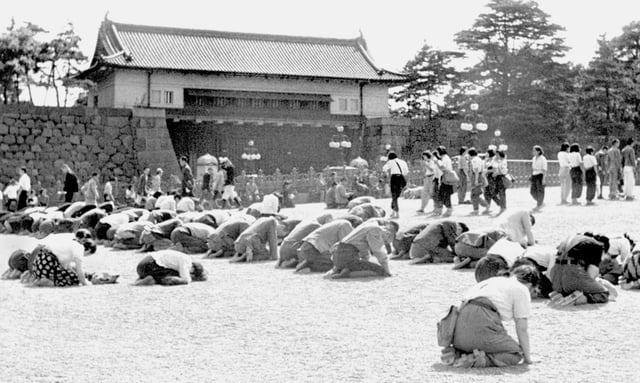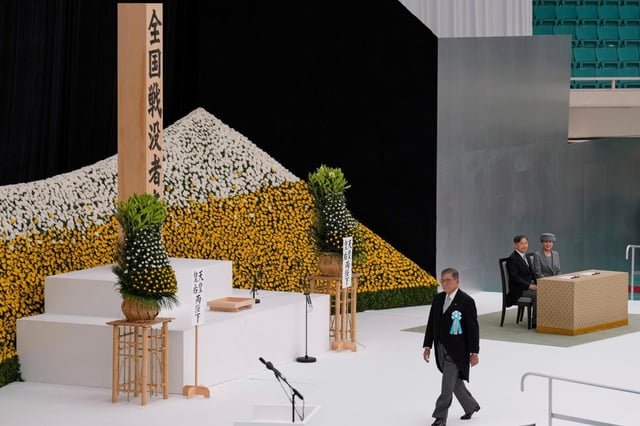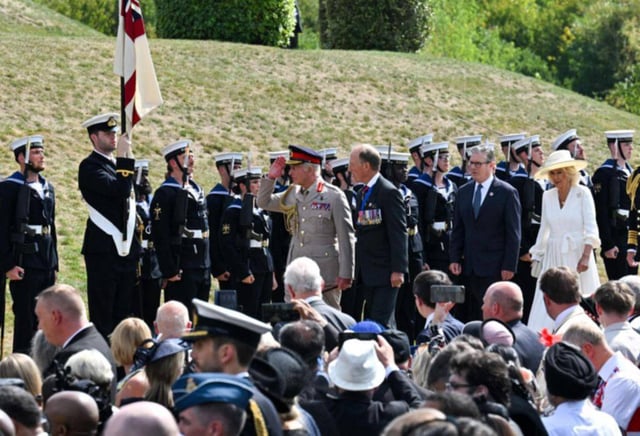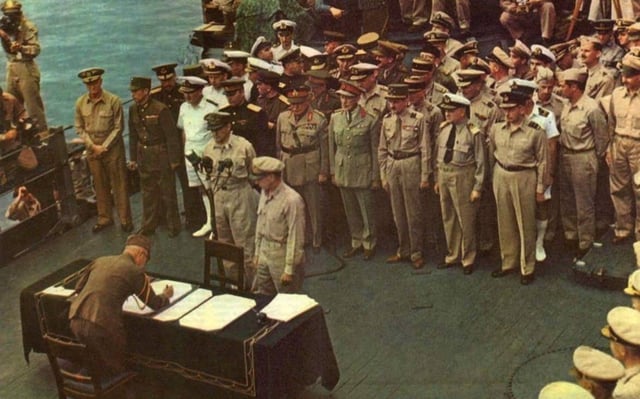Overview
- Prime Minister Shigeru Ishiba became the first ruling PLD leader to express “remordimiento” in an August 15 ceremony, framing the conflict as a national mistake and pledging peace.
- Emperor Naruhito voiced deep sorrow for the lives lost and stressed the need to pass wartime memories to generations born after 1945.
- Despite Ishiba’s abstention, several ministers and lawmakers either visited or sent offerings to Yasukuni Shrine, drawing sharp criticism from China and South Korea.
- Beijing has intensified its memory diplomacy this month by declassifying wartime archives, mounting major exhibitions and preparing a high-profile military parade on September 3.
- With more than half of ceremony attendees born after World War II, officials and historians warn of an urgent need to preserve hibakusha testimony and ensure historical accountability.



